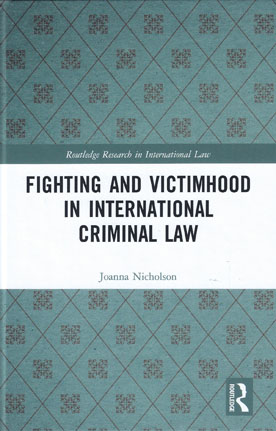
The differences between civilians and combatants manifest themselves in many ways, one of the most crucial being that during armed conflicts combatants constitute military targets whereas civilians are protected against attack.
International humanitarian law places limits on the violence which can be used against combatants, and individuals who breach these limits can be held accountable under international criminal law for their actions. Although combatants and others who are or have been involved in combat can be victims of international crimes, when atrocities occur during armed conflicts, it is the crimes committed against civilian victims which garner the greatest attention and condemnation from the world community, a trend continues when cases come before international criminal courts or tribunals.
With the important exceptions of crimes committed against child soldiers and peacekeepers, international criminal cases overwhelmingly focus on the civilian victims of atrocities.
This book explores the interaction between international humanitarian law and international criminal law focusing on members of state armed forces, other ‘fighters’ and those who are hors de combat as victims in international criminal law.
The book uses the case law of International Criminal Court, the International Criminal Tribunal for the former Yugoslavia, the International Criminal Tribunal for Rwanda and the Special Court for Sierra Leone as well as relevant treaty law and customary international law, are analysed in order to establish whether a coherent approach has been taken.
Topics covered by the book include: how international criminal courts and tribunals determine who has been the victim of a war crime from who has been a lawful casualty of war; the particular war crimes which can be committed against fighters during the conduct of hostilities; whether or not fighters can be victims of a war crime if the perpetrators of the alleged crime are fighting on the same side; and whether those people who are hors de combat can be victims of crimes against humanity and genocide.
Joanna Nicholson argues throughout the book that the unique issues which can arise when victims of international crimes are people who have been involved in combat are not always fully appreciated by international criminal courts and tribunals.